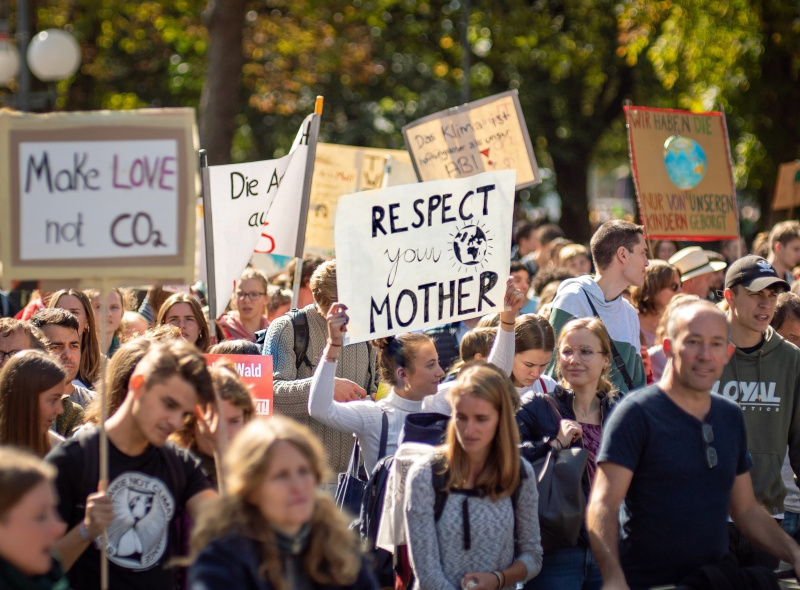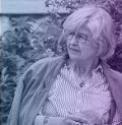Mothering in a Time of Climate Change Precarity

Contributions including essays, poetry, personal narratives, and more are invited for an edited collection with the working title "Mothering in a Time of Climate Change Precarity".
Read the full call here: https://rb.gy/ysw037
In the last decade, more attention has been brought to mothering, motherhood, and being a mother within the climate crisis—a time in which planetary doom is a real possibility. Popular representations of maternal distress due to increased awareness of climate change emergency mirror mainstream environmentalism’s framing of mothers as “ecologically other” for reproducing and consuming in the first place (Ray 2011). Rarely are mothers invited to explore how intersectional identities (Crenshaw 1989; Hill Collins 1990) impact their embodied experiences and behavioral responses to growing climate crisis consciousness. Academic research on the transition into motherhood and maternal activism demonstrates a widespread growing concern for the risks environmental damage poses to children’s lives as well as those of nonhuman living beings on the planet (Cairns, Johnston, and MacKendrick 2013; Carey, Shaw, and Shui 2008; Knibb and Taylor 2017). However, much of the research into the awakening of environmental concern and advocacy in motherhood focuses on shifts in cisgendered female mothers’ consumption decisions and intensive “green motherhood” identities (Atkinson 2014). As individualized, human-centered, and consumer-driven interventions alone have not been sufficient measures to achieve maternal and planetary wellness (Nutter-Smith 2010), we must seek more radical alternatives. The time is ripe for a matricentric, critical, intersectional, and experiential investigation into maternal practice in climate change precarity.
 This proposed collection invites contributions from a wide range of disciplinary and transdisciplinary perspectives to reframe, reinterpret, and reimagine environmental-centered ethical concerns in mothers’ lives. Sample inquiries might include:
This proposed collection invites contributions from a wide range of disciplinary and transdisciplinary perspectives to reframe, reinterpret, and reimagine environmental-centered ethical concerns in mothers’ lives. Sample inquiries might include:
- How might personal experiences of ecodistress arising within mothering experiences be caused and complicated by intensive green motherhood prescriptions?
- How might associations between mothers and nature serve or hinder grounded climate activism?
- How do nonhuman mothers respond to climate change’s ecological destruction and disasters? How can we stand in solidarity with them?
- How does normative green motherhood’s environmental advocacy uphold systemic root causes of our planetary crisis by reinforcing the dominant culture’s white supremacist cisheteropatriarchal colonial norms?
- How might we approach ecological awakenings emerging in mothering to support, rather than hinder, maternal and planetary wellness?
- How might a mothering lens challenge mainstream environmental activism stemming from a consciousness that emphasizes an anthropocentric value orientation and accepts the current political and economic system with behavioral and quantifiable efficiency modifications?
- Can motherhood serve as a medium to deepen relationships with nature, build foundations for more ethical, ecological advocacy, and shift harmful paradigms of normative motherhood to envision environmentally just and sustainable alternatives? What foundations are necessary for this to be true?
A mother is anyone who takes on the reproductive labor of child-rearing as a central part of their life (Ruddick 1980). The category of mother is distinct from the category of woman and even human. Many of the problems mothers face—socially, economically, politically, culturally, psychologically, ecologically, spiritually—are specific to the role and identity of mother (O’Reilly 2021). Therefore, this collection seeks to expand our mothering paradigm through stories, theories, and tactics that demonstrate the wide range of maternal praxis mothers engage as they confront concerns about ecological degradation and practice their environmental activism in personal and public spaces. Mothering in a Time of Climate Change Precarity examines how human mothers uniquely suffer from climate change consciousness, ecological destruction and disaster, and future uncertainty, but it also proposes possible models for engagement in conversations about Western motherhood’s perpetuation of racism, heterosexism, and speciesism that have led to our climate crisis, how to build transnational decolonial values into maternal environmental advocacy and how mother activists create functional boundaries around effective environmental activism. Finally, it explores alternatives to paradigms of authority and agency which have historically positioned human mothers as arbiters of one-way advocacy, encouraging dialogical understandings of nonhuman maternal participation and agency.
The collection includes essays, poetry, personal narratives, and more. Pieces will be organized based on lived experiences from the lifespan of mothering, including:
- Considering motherhood
- Pregnancy and the perinatal period
- Mothering babies and/or children
- Mothering teens
- Mothering adults
- Older mothers and/or grandmothers
Each section will include texts in various formats that illustrate embodied experiences and behavioral responses to living each of these mothering realities.
Proposed Publication Timetable:
- February 2022: CFP goes out
- April 14, 2022: Proposals due
- May 13, 2022: Initial acceptances go out
- August 1, 2022: Submission to publisher
- October 1, 2022: First drafts due
- November 15, 2022: Initial feedback out to authors
- January 1, 2023: Revised drafts due
- February 30, 2023: Draft manuscript to the publisher
Please send your 500-word proposals to allisondavisphd@gmail.com. In your proposals, be sure to include your name and contact email, a short biographical sketch and/or CV, the title of your contribution, the overall focus and/or argument of your proposal and its relation to the CFP, and your proposed genre or form for the piece. Potential contributors are welcome to contact me with any questions or concerns throughout the process. Authors should hold the rights to the works submitted.
Editor: Allison Davis, MS, LPCC, PhD
Allison Davis, MS, LPCC, PhD
Counselor, Educator, and Researcher
Maternal Mental Health Ecotherapy <http://www.mothernaturetherapy.com/>
Call for Papers: Mothering in a Time of Climate Change Precarity <https://www.mothernaturetherapy.com/cfp> (Edited Collection)





